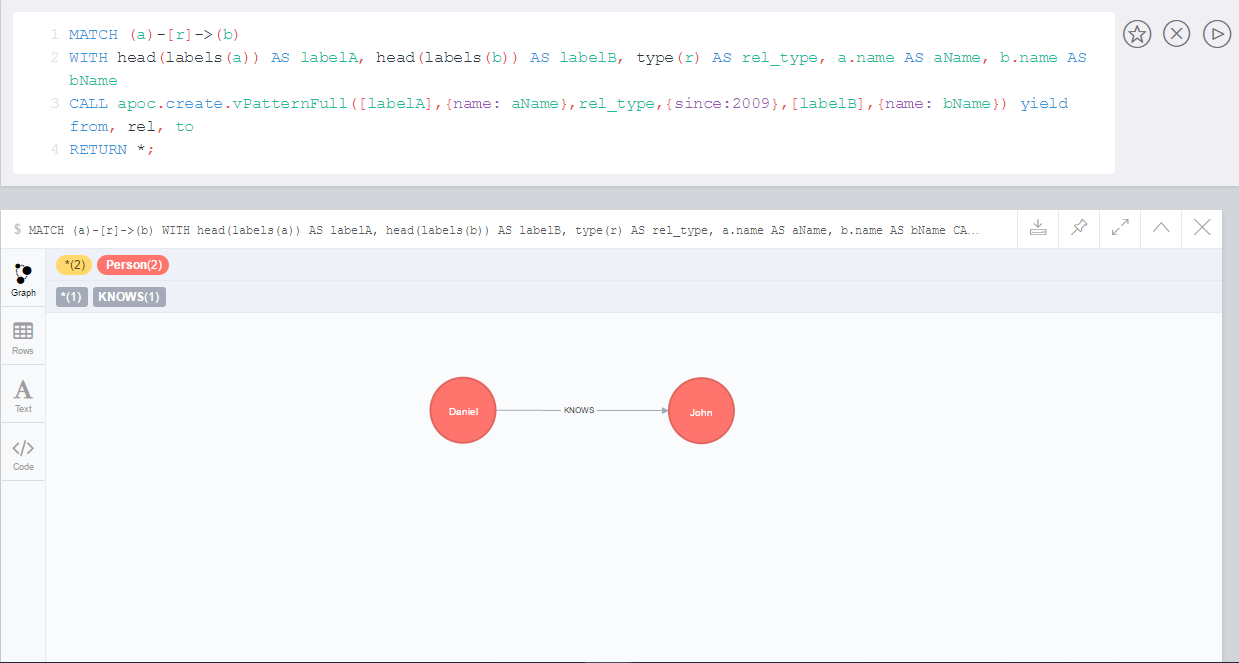Virtual Nodes and Relationships don’t exist in the graph, they are only returned to the UI/user for representing a graph projection. They can be visualized or processed otherwise. Please note that they have negative id’s.
|
|
returns a virtual node |
|
|
function returns a virtual node |
|
|
returns virtual nodes |
|
|
returns a virtual relationship |
|
|
function returns a virtual relationship |
|
|
returns a virtual pattern |
|
|
returns a virtual pattern |
Simple example aggregate Relationships.
MATCH (from:Account)-[:SENT]->(p:Payment)-[:RECEIVED]->(to:Account)
RETURN from, to, apoc.create.vRelationship(from,'PAID',{amount:sum(p.amount)},to) as rel;
Example with virtual node lookups, people grouped by their countries.
MATCH (p:Person) WITH collect(distinct p.country) as countries
WITH [cName IN countries | apoc.create.vNode(['Country'],{name:cName})] as countryNodes
WITH apoc.coll.groupBy(countryNodes,'name') as countries
MATCH (p1:Person)-[:KNOWS]->(p2:Person)
WITH p1.country as cFrom, p2.country as cTo, count(*) as count, countries
RETURN countries[cFrom] as from, countries[cTo] as to, apoc.create.vRelationship(countries[cFrom],'KNOWS',{count:count},countries[cTo]) as rel;
That’s of course easier with apoc.nodes.group.
From a simple dataset
CREATE(a:Person)-[r:ACTED_IN]->(b:Movie)We can create a virtual copy, adding as attribute name the labels value
MATCH (a)-[r]->(b)
WITH head(labels(a)) AS l, head(labels(b)) AS l2, type(r) AS rel_type, count(*) as count
CALL apoc.create.vNode([l],{name:l}) yield node as a
CALL apoc.create.vNode([l2],{name:l2}) yield node as b
CALL apoc.create.vRelationship(a,rel_type,{count:count},b) yield rel
RETURN *;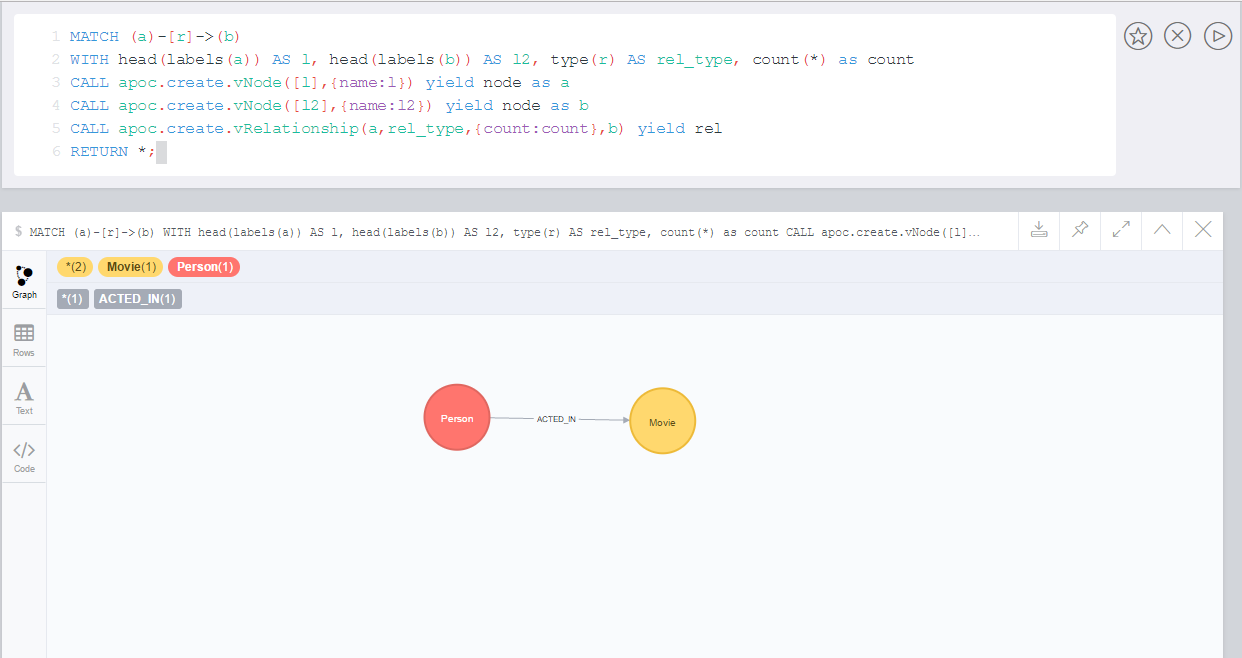
|
Virtual nodes and virtual relationships have always a negative id |

Virtual pattern vPattern.
CALL apoc.create.vPattern({_labels:['Person'],name:'Mary'},'KNOWS',{since:2012},{_labels:['Person'],name:'Michael'})
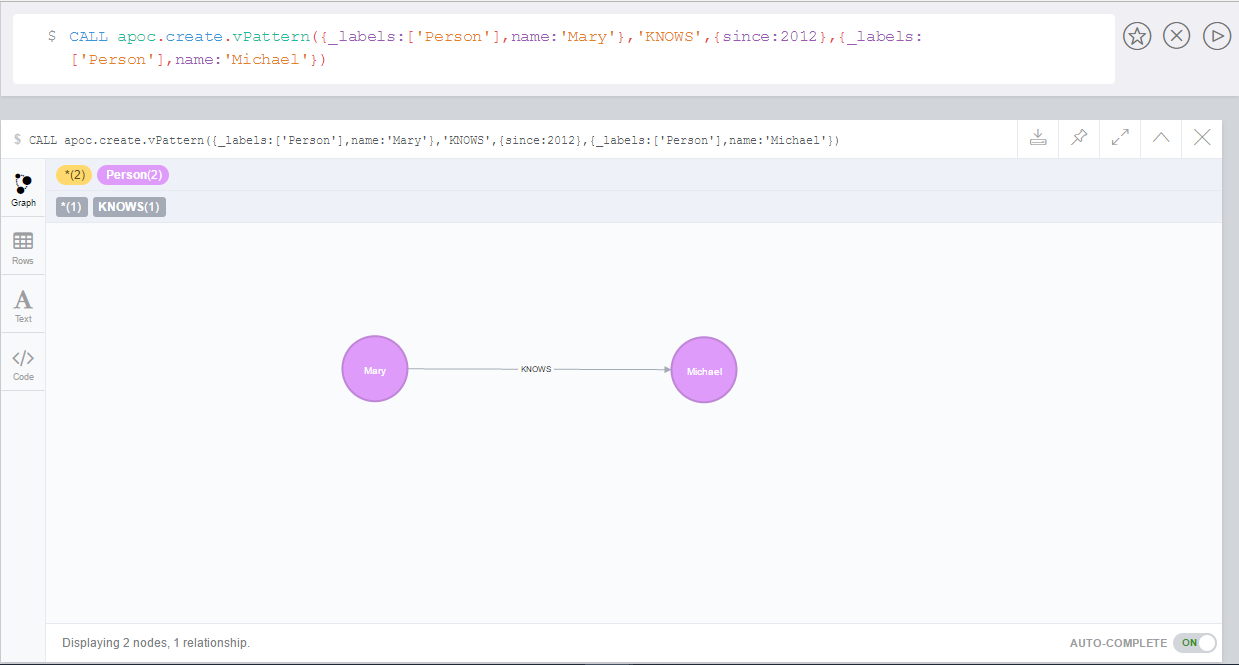
We can add more labels, just adding them on _labels
CALL apoc.create.vPattern({_labels:['Person', 'Woman'],name:'Mary'},'KNOWS',{since:2012},{_labels:['Person', 'Man'],name:'Michael'})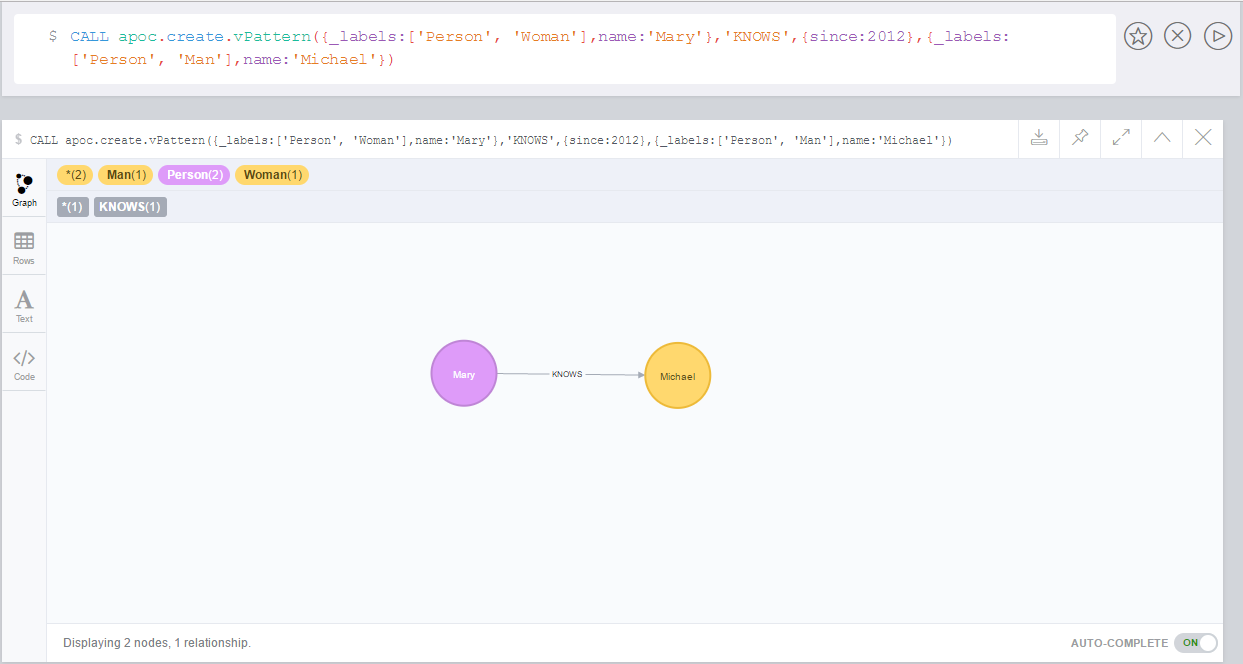
Virtual pattern full vPatternFull.
CALL apoc.create.vPatternFull(['British','Person'],{name:'James', age:28},'KNOWS',{since:2009},['Swedish','Person'],{name:'Daniel', age:30})
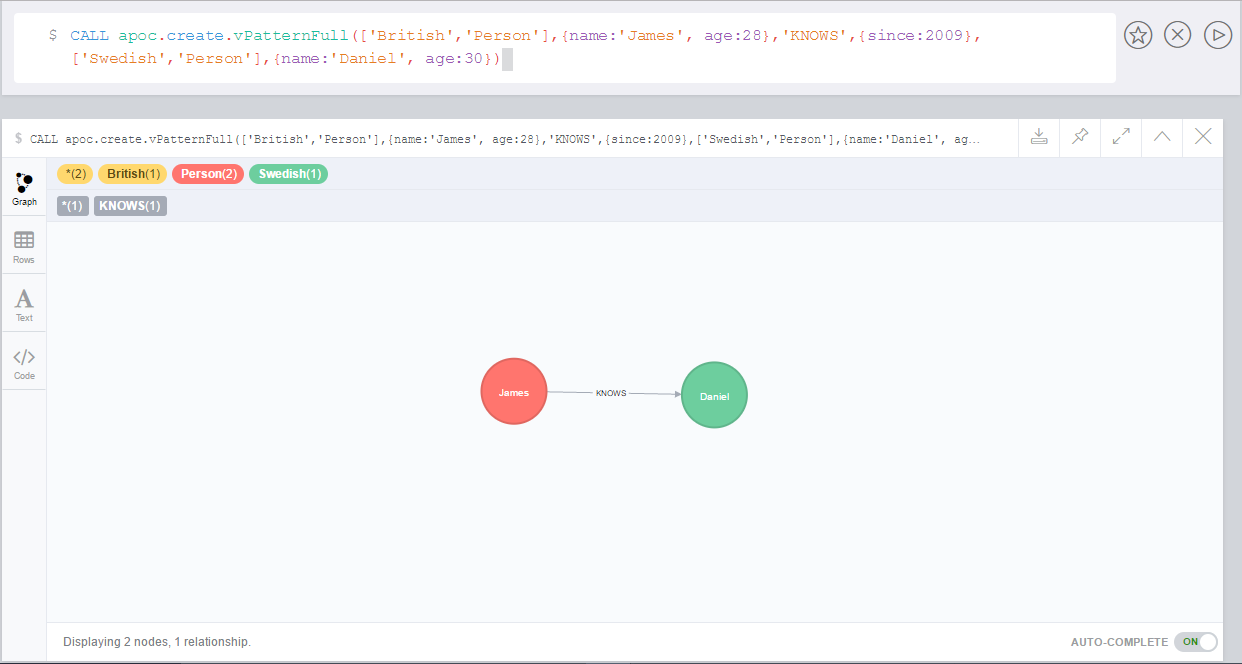
We can create a virtual pattern from an existing one
CREATE(a:Person {name:'Daniel'})-[r:KNOWS]->(b:Person {name:'John'})From this dataset we can create a virtual pattern
MATCH (a)-[r]->(b)
WITH head(labels(a)) AS labelA, head(labels(b)) AS labelB, type(r) AS rel_type, a.name AS aName, b.name AS bName
CALL apoc.create.vPatternFull([labelA],{name: aName},rel_type,{since:2009},[labelB],{name: bName}) yield from, rel, to
RETURN *;